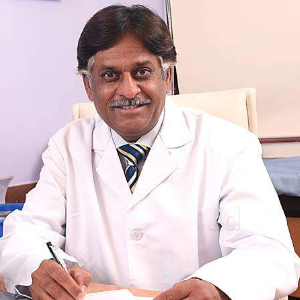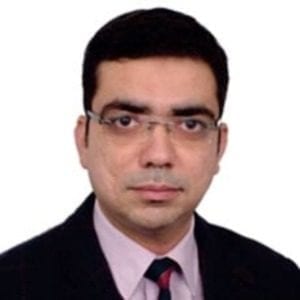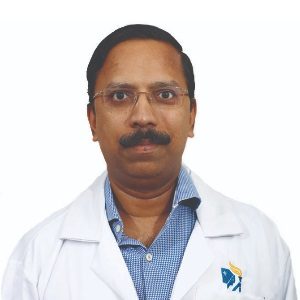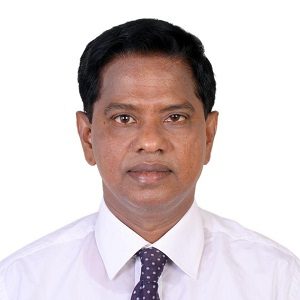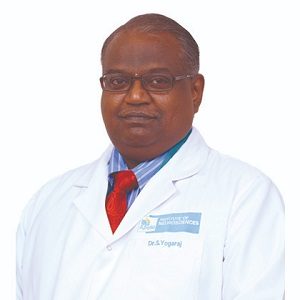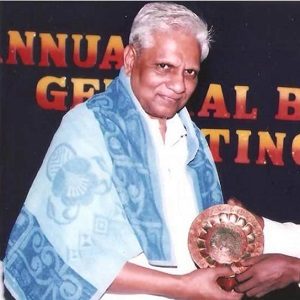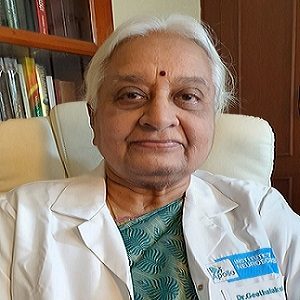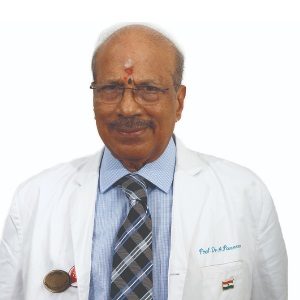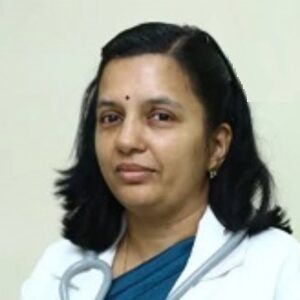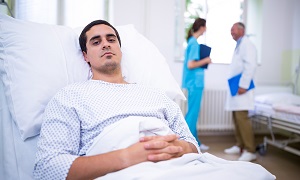Best Doctors in India for Vagus Nerve Stimulation
- Neurosurgeon, Mumbai, India
- Over 20 years’ experience
Profile Highlights:
- Dr. Suresh Sankhla is an accomplished Neurosurgeon in Mumbai specializing in endoscopic neurosurgery and onco-neurosurgery.
- Dr. Sankhla acquired his training in neurosurgery under the guidance of the best trainers from well-known medical institutes and hospitals in Ireland, UK, USA as well as India.
- He has an equal interest in research and has published more than 100 articles, papers, and abstracts in renowned national and international peer-reviewed journals.
- Interventional Neuroradiologist, Gurugram, India
- Over 20 years’ experience
Profile Highlights:
- Dr. Tariq Matin is a Neurologist in Gurugram specializing in Interventional Neuroradiology.
- He holds over a decade of experience in the field and holds a fellowship from Foch Hospital, France in interventional neurosurgery and also received his training from AIIMS in Delhi.
- He provides treatment for acute ischemic stroke with the use of mechanical and chemical thrombolytic agents and endovascular coiling of complex aneurysms.
- Neurologist, Chennai, India
- Over 33 years’ experience
Profile Highlights:
- Dr. Arulselvan V L is one of the finest Neurologists in India, with an overall experience of nearly 33 years.
- Dr. Arulselvan was bestowed with an Excellence Award for aptitude in Anatomy in his academics.
- He takes a holistic approach to treating conditions like Myelitis, Encephalitis, Meningitis, Cerebral or Brain Aneurysm, PSR, PBC, Brain Tumor Surgery, and Sleep Disorders and performs different therapies.
- He has a periodical ‘JIAN’ under his name.
- Neurologist, Chennai, India
- Over 30 years’ experience
Profile Highlights:
- Dr. Rajendran S is a veteran Neurologist in Tamil Nadu with nearly 3 decades of experience.
- Dr. Rajendran acquired advanced training in Neuropsychiatry from Cardiff, UK, and also obtained M.Sc. in Clinical Neurology from London.
- He treats conditions like Stroke, Parkinson’s Disease, Back & neck pain, Neurological dysfunction, Surgical Clipping, Endovascular Coiling, Cerebral Angioplasty, Lesionectomy, MVD, PSR, and Restless Leg Syndrome, etc.
- Neurologist, Chennai, India
- Over 24 years’ experience
Profile Highlights:
- Dr. S. Yogaraj is an experienced Neurologist in India, having over 24 years of experience in the field.
- He specializes in treating emergency neurology conditions like stroke, neuromuscular disorders, CNS infections, Peripheral Nerve issues, etc.
- Dr. Yogaraj is instrumental in designing, implementing, and reporting electrophysiological training. He trained physicians, neurologists, and paramedical staff.
- Neurologist, Chennai, India
- Over 45 years’ experience
Profile Highlights:
- Dr. Dhanaraj is a recognized neurologist in India with 45+ years of experience.
- Dr. Dhanaraj was awarded Life Time Achievement Award from Tamil Nadu DR. MGR University, Chennai for his exemplary services.
- He presented about 50 research papers and received awards for a couple of them. Dr. Dhanaraj also authored a book on Acute Cardiovascular disease.
- Neurologist, Chennai, India
- Over 45 years’ experience
Profile Highlights:
- Dr. Geetha Lakshmipathy is one of the most renowned Neurologists in India with a rich experience of more than 45+ years. Her experience stretches across academic, research, clinical, and administrative work.
- Dr. Geetha Lakshmipathy offers the best medical services for Nerve and Muscle Disorders, Brain mapping, Spinal Disorders, Digital Subtraction Angiography, Epilepsy Treatment, Deep Brain Stimulation, skull surgery, Peripheral Neuropathy (Diabetic/ CIDP/ CIDP), etc.
- Dr. Lakshmipathy presented and published many research studies at various places and guided students of DM-Neurology for their thesis.
- Neurologist, Chennai, India
- Over 50 years’ experience
Profile Highlights:
- Dr. Panneer is one of the most renowned Neurologists in India with huge 50+ years of research and clinical experience in the field.
- Dr. Panneer is believed to have expertise in Migraine treatment and neurological disorders management.
- He offers consultation and medical services for Neurosurgery, cerebral angioplasty, Stereotactic Radio Surgery, PBC, Alcohol Withdrawal Syndrome, sleep disorders, skull base surgery, etc.
- Pediatric Neurologist, Chennai, India
- Over 26 years’ experience
Profile Highlights:
- Dr. Sivaji Vani serves as a Pediatric Neurology Consultant at Apollo Hospitals, Chennai.
- Before Chennai, she served in the UK and has developed a sound knowledge in the field of Pediatric Neurology.
- Her overall experience of 26 years involves the treatment of patients with giddiness problems, neurological problems, vertigo, epilepsy, stroke, spinal disorders, etc.
Best Hospitals in India for Vagus Nerve Stimulation
Paras Hospital, Gurugram
- City: Gurugram, India
Hospital Highlights:
- Paras hospital was established in 2006 and is the 250 bedded flagship hospital of Paras Healthcare.
- The is supported by a team of doctors of international and national repute.
- The hospital is NABH accredited and also the first hospital in the region to have a NABL accredited laboratory.
- The hospital provides specialty medical services in around 55 departments including Neurosciences, Joint Replacement, Mother & Child Care, Minimal Invasive Surgery, Gynecology and Obstetrics, Ophthalmology, Dermatology, Endocrinology, Rheumatology, Cosmetic and Plastic surgery.
- The hospital is equipped with state-of-the-art technologies.
S L Raheja Hospital, Mahim, Mumbai
- City: Mumbai, India
Hospital Highlights:
- SL Raheja hospital is a 140-bed multi-specialty tertiary care hospital that is being managed by Fortis Healthcare Ltd.
- The hospital is a benchmark in healthcare and medical facilities in the neighborhood of Mahim & the western suburbs.
- L.Raheja Hospital, Mahim has one of the most effective ICU and Casualty care services.
- The hospital provides specialty medical services in Cardiology, Oncology, Neurology, Orthopedics, Mother & Child Care, and in Diabetes.
Wockhardt Hospitals, Mumbai
- City: Mumbai, India
Hospital Highlights:
- Wockhardt Hospitals were established in the year 1973, originally called First Hospitals and Heart Institute.
- Wockhardt Hospitals are super specialty health care networks in India, nurtured by Wockhardt Ltd, India’s 5th largest Pharmaceutical and Healthcare company.
- Wockhardt Hospitals is associated with Partners Harvard Medical International, an international arm of Harvard Medical School, USA.
- Wockhardt Heart Hospital performed India’s first endoscopic heart surgery.
- The hospital has a state-of-the-art infrastructure equipped with the latest technologies and modern equipment.
- It has special Centers of Excellence dedicated to the major specialties to provide hassle-free and high-quality clinical care.
Pushpawati Singhania Hospital & Research Institute, New Delhi
- City: New Delhi, India
Hospital Highlights:
- Established in 1996, Pushpawati Singhania Research Institute is one of the top hospitals in the NCR region, as well as one of the top facilities in India for gastroenterology. The hospital is one of South Asia’s first institutes in medical and surgical treatment for diseases related to digestion.
- The hospital is equipped with state-of-the art facilities coupled with the latest equipment as well as renowned consultants from various parts of India as well as other parts of the world.
Indian Spinal Injuries Center, New Delhi, India
- City: New Delhi, India
Hospital Highlights:
- The Indian Spinal Injuries Center (ISIC), provides state-of-the-art facilities for the management of all types of spinal ailments.
- Staffed with internationally trained, acclaimed, and dedicated spine surgeons, the hospital provides cutting-edge medical & surgical technology. The hospital provides comprehensive management of spinal injury, back pain, spinal deformities, tumors, osteoporosis, etc.
- The hospital performs motion-preserving spine surgeries including disc replacement and dynamic fixation, and minimally invasive spine surgeries such as endoscopic disc excision.
- The orthopedic service of the hospital covers all orthopedic ailments including trauma, joint diseases & replacements, oncology, pediatric orthopedics & upper limb ailment.
W Pratiksha Hospital, Gurgaon
- City: Gurugram, India
Hospital Highlights:
- W Pratiksha Hospital, Gurugram, is one of the best hospitals in the NCR region. It is also a top hospital in India for IVF. Since its inception, the hospital has performed over 5500 successful IVFs. The hospital also specializes in gynecology.
- With over 20 years of experience in providing quality healthcare, the hospital is known as one of the most trusted and valued health providers in India.
- Equipped with world-class medical facilities and advanced technology, the hospital’s doctors and clinicians also have a track record of delivering excellent results. The hospital is also known for focusing on preventive well-being as much as on curative treatment.
- The hospital has earned the trust of its patients, by providing the best available treatments at affordable costs.
Narayana Superspeciality Hospital, Gurugram
- City: Gurugram, India
Hospital Highlights:
- Situated near DLF Cyber City, Gurugram, Narayana Superspecialty Hospital is one of the top medical facilities in the Delhi NCR region, catering to the needs of the people. Known for its commitment to quality medical care and patient service, the hospital is a state-of-the-art facility with planned and well-equipped sections, which includes a spacious OPD area as well as comfortable patient rooms.
- It is the closest super-specialty hospital from Indira Gandhi International Airport towards Gurugram, and also the nearest super specialty hospital from DLF Cyber City. It is also close to major residential areas in Gurugram.
- It is part of the renowned Narayana Health Group. Established in 2000, by Dr. Devi Shetty, a renowned cardiac surgeon, it has grown to be one fo India’s leading healthcare groups.
Sir Ganga Ram Hospital, New Delhi
- City: New Delhi, India
Hospital Highlights:
- Sir Ganga Ram Hospital, New Delhi is known to provide the latest medical procedures with the latest technology in all of its units.
- The hospital has a team of reputed doctors, nurses, and healthcare professionals that ensure that patients receive quality care at affordable costs.
- Staffed with a team of highly qualified doctors, dedicated nurses, and paramedical and non-medical staff, the hospital aims to lead in healthcare delivery, medical education, training, and research.
- As per the vision of the founder, the hospital also provides free treatment to the economically weaker sections of society.
- Sir Ganga Ram Hospital also provides training to young doctors under the Diplomate in National Board(DNB) program. The DNB program at the hospital was started in 1984 and it is known for currently running the maximum number of DNB specialties in the country. It also has the distinction of having the first bone bank in India.
KIMS Hospital, Hyderabad
- City: Hyderabad, India
Hospital Highlights:
- KIMS Hospital (a brand name of Krishna Institute of Medical Sciences) is one of the largest and best multi-speciality hospitals in Hyderabad. The hospital provides various treatments to an enormous number of patients.
- The hospital has a capacity of more than 3000 beds. KIMS Hospitals offers different healthcare services in more than 25 specialities and super specialities.
- The hospital is equipped with modern medical equipment and technology. It has robotic equipment to provide minimal invasive techniques for patients.
- The hospital is aimed at providing world-class healthcare facilities and services at an affordable cost for patients.
- The various specialities and departments of the hospital include neurosciences, gastroenterology & hepatology, robotic science, reproductive sciences, dental science, oncological sciences, organ transplantation, heart and lung transplantation and mother and child care.
Fortis Hospital, Shalimar Bagh
- City: New Delhi, India
Hospital Highlights:
- Fortis Hospital in Shalimar Bagh is a multi-super specialty hospital that strives to provide world-class patient care by leaving no stone unturned.
- Fortis, Shalimar Bagh, with 262 beds and a 7.34-acre footprint, provides the best level of medical care through its team of doctors, nurses, technicians, and management professionals.
Vagus Nerve Stimulation
Vagus nerve stimulation is a type of treatment which is used for epilepsy and depression. It involves the use of a device that can stimulate the vagus nerve with the help of electrical impulses. A human body has two vagus nerves on each side. They run from the brainstem through the neck to the chest and abdomen.
The procedure is a type of neuromodulation. It has been designed for changing how the cells of your brain work with the help of electrical stimulation to certain areas involved in seizures. It can help several organs which include your voice box, heart, lungs as well as the digestive tract.
Purpose
Approximately one-third of people who suffer from epilepsy usually don’t respond well to anti-seizure drugs. Vagus nerve stimulation can be an option for reducing the frequency of seizures in people who are unable to achieve control with medications.
Vagus nerve stimulation may also be beneficial for people who are not responding well to intensive depression treatments, including antidepressant medications, psychotherapy or electroconvulsive therapy.
Before the procedure
Your doctor will need to do a physical examination before the surgery. You may require few blood tests or other tests in order to make sure that you are not going through any health concerns that might later cause a problem. Your doctor might let you take antibiotics before surgery to prevent any infection.
During the procedure
Surgery for implanting the vagus nerve stimulation device is generally done on an outpatient basis, although some surgeons may recommend you to stay overnight.
The surgery should take an hour to 90 minutes. Your doctor might numb the surgery area using local anesthesia or might use general anesthesia so that you are unconscious during the entire procedure.
Two incisions are made; first one is on your chest or in the armpit (axillary) region and the second one is on the left side of your neck.
Then your surgeon implants the pulse generator in the upper left side of your chest. This device is meant to be a permanent implant, but you can remove it, if required.
The pulse generator is generally the size of stopwatch and it runs on battery power. A lead wire will be next connected to the pulse generator. Then the surgeon will guide it under your skin from your chest up to your neck. There your surgeon attaches it to the left vagus nerve through the second incision.
After the procedure
A few weeks after the surgery, the pulse generator can be turned on during your next visit to your doctor’s office. It can be programmed to deliver electrical impulses to the vagus nerve at various durations, currents and frequencies. Usually, vagus nerve stimulation starts at a low level and is later increased gradually depending on your symptoms and side effects.
The stimulation is programmed to turn on and off in specific cycles. You can experience some tingling sensations or even a little pain in your neck as well as temporary hoarseness when the nerve stimulation is on.
The stimulator is unable to detect seizure activity or symptoms of depression. Therefore, when it’s turned on, the stimulator will be turning on and off at the intervals selected by your doctor. You can use a hand-held magnet for initiating stimulation as well, if you sense an impending seizure.
The magnet can also be used to temporarily turn off the vagus nerve stimulation, which may be necessary when you do certain activities such as public speaking, singing or exercising or when you’re eating if you have any swallowing problems.
It is recommended that you visit your doctor periodically so that you can make sure that the pulse generator is working properly and to check if has shifted out of position. Check with your doctor before having any medical tests, such as magnetic resonance imagine (MRI), which might interfere with your device.
It is to be noted that vagus nerve stimulation can’t cure epilepsy and most patients having epilepsy will not stop having seizures and can’t stop taking epilepsy medication altogether after this procedure. However, many will be having fewer seizures. The intensity of the seizures can also lessen.
It might take months or even a year or longer of stimulation before you are able to notice any significant reduction in seizures.
Risks
Surgery risks
Surgical complications with implanted vagus nerve stimulation are similar to the risks of having any other type of surgery. However, such complications are rare. They can include:
- Pain at the incision site
- Difficulty swallowing
- Infection
- Vocal cord paralysis; this is usually temporary, but can be permanent
Side effects after surgery
There are multiple side effects and health problems which are associated with implanted vagus nerve stimulation. These can include:
- Voice changes
- Throat pain
- Hoarseness
- Shortness of breath
- Difficulty swallowing
- Cough
- Headaches
- Insomnia
- Tingling or prickling of the skin
- Worsening of sleep apnea
Side effects are tolerable. They can sometimes lessen over time. However, some of these side effects can remain and cause some discomfort as long as you use implanted vagus nerve stimulation.
Adjusting the electrical impulses can sometimes help one to minimize these effects. If the side effects are intolerable, then it is best that the device is shut off temporarily or permanently.

